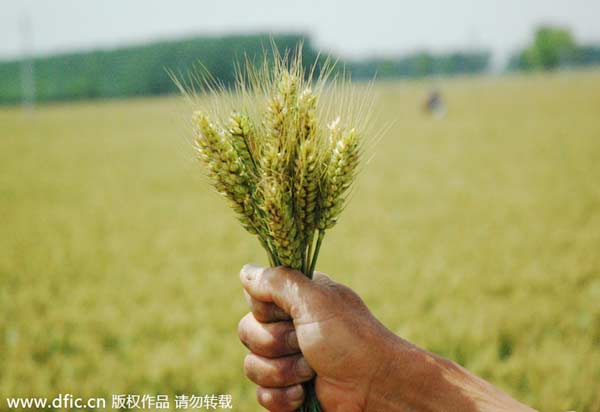Chinese consume too much food from animals, experts say
 |
|
[Photo/icpress] |
New government guideline sets nation's long-term nutrition goals
Chinese people appear to be eating more food from animals than they actually need, and this "compensatory consumption of food" may not change until the 2020s.
Wang Dongyang, deputy director of the Institute of Food and Nutrition Development under the Ministry of Agriculture, made the remarks at a media workshop on Wednesday. The workshop examined the new government guideline to develop China's food supply and nutrition.
The guideline was jointly issued on Monday by several government departments, including the Ministry of Agriculture and the National Health and Family Planning Commission.
"The guideline aims to help guarantee the supply of quality food and improve people's nutrition," Wang said.
The guideline sets goals for the food industry and nutritional health. By 2020, China's annual grain output will be 550 million metric tons or above, and the food industry's annual growth rate will stay at 10 percent or above, the guideline says.
The annual consumption per capita of meat by 2020 will be 29 kg, while eggs will be 16 kg and dairy products will be 36 kg, it said.
"Various factors, including foreign experiences, food consumption habits, public health, food supply capacity, and the trend of industrialization and urbanization, were considered while setting those figures," he said.
Wang conceded that it's possible the numbers will be higher.
China couldn't ensure an abundant supply of food until the late 1990s, and after that, people tended to experience a period of "compensatory consumption", which might last more than 20 years, Wang said.
In 2010, nearly 28 percent of Chinese ate more than 100 grams of meat daily, a survey of the Chinese Center for Disease Control and Prevention showed.






















